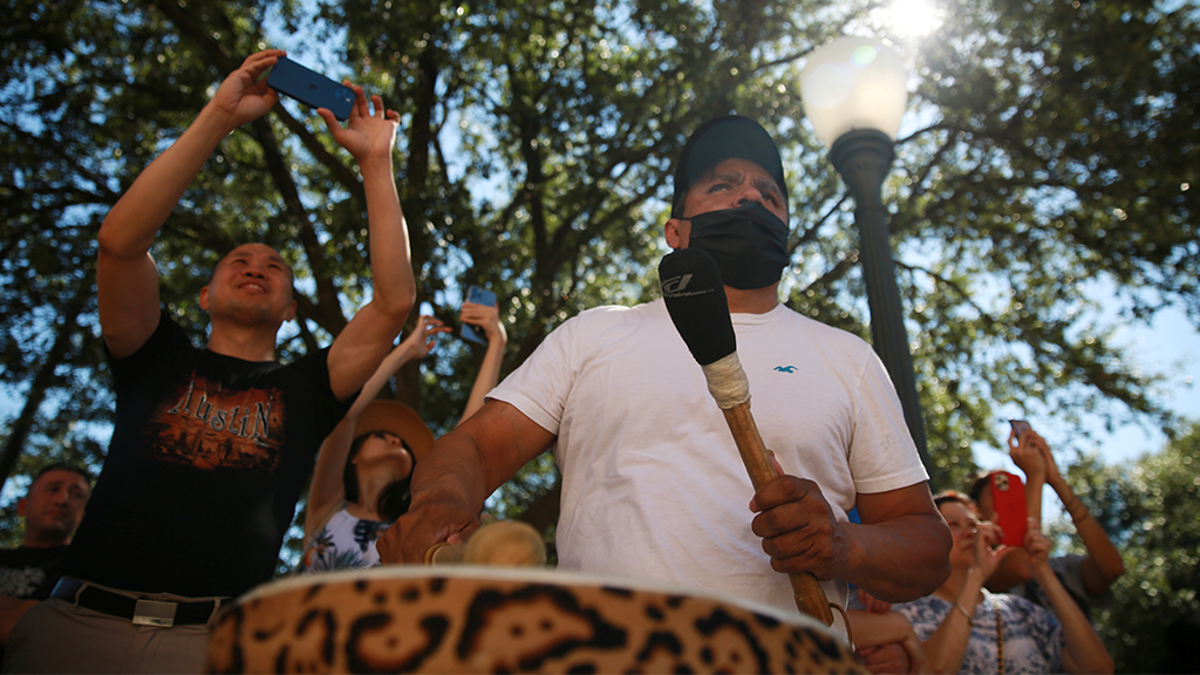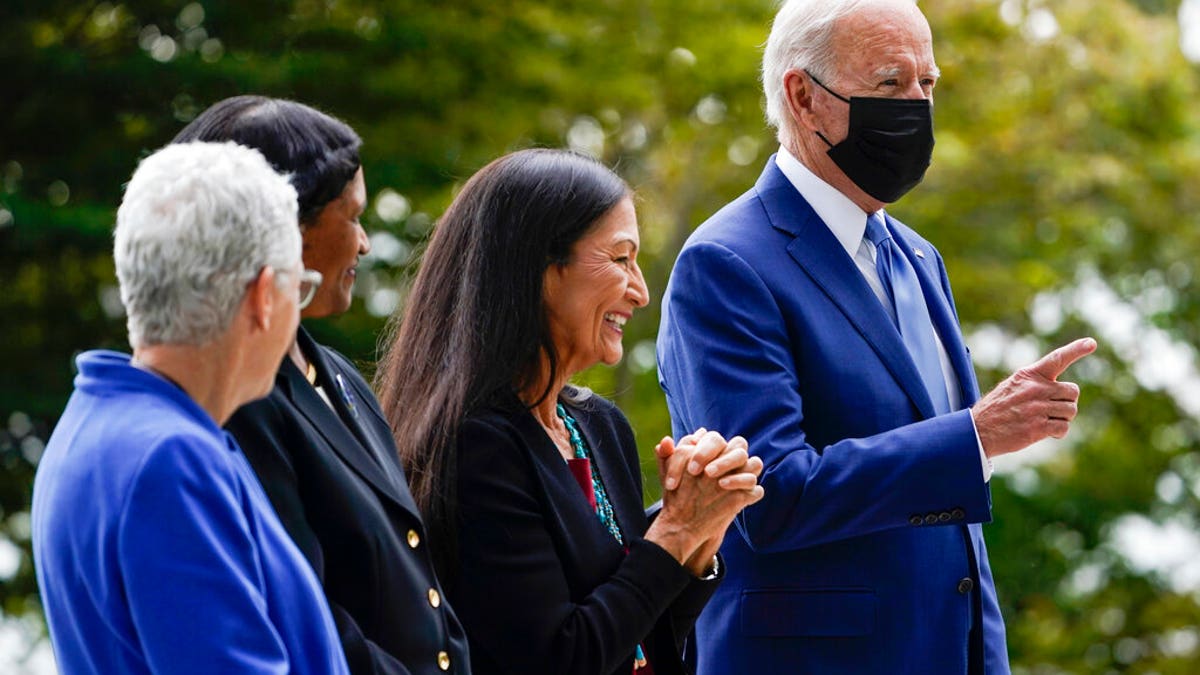Fox News Flash top headlines for October 10
Fox News Flash top headlines are here. Check out what's clicking on Foxnews.com.
Across the country, many colleges are holding events to celebrate "Indigenous Peoples Day," refocusing what has for years been a federal holiday celebrating Christopher Columbus toward an appreciation of Native peoples.
The Denmos Museum Center, located at Northwestern Michigan College, will be offering free admission and an outdoor event organized by Todd Parker, the Native American success coach, and members of NMC’s Native American Student Organization.
Wunk Sheek, an Indigenous student organization at the University of Wisconsin-Madison, will be hosting a one-session powwow at 7 p.m. in Gordon Commons.
For the first time, Boston University will be commemorating Indigenous Peoples Day to celebrate the "accomplishments of indigenous, Native American and First Nations people."
On its website, the university put together a recommended reading list in honor of the holiday.
Stanford University, meanwhile, has launched a "land acknowledgment" website, honoring relationships with Native peoples. The schools say it encourages the use of the land acknowledgment at events to celebrate ties to the Muwekma Ohlone and other Native communities.

Event to mark Indigenous People's day is held in Austin Javier Flores of Danza Azteca Guadalupana performs during an event to mark Indigenous Peoples' day at the capitol grounds in Austin, Texas, U.S. (Reuters)
The University of Buffalo issued a similar proclamation, saying it will observe Indigenous Peoples Day in honor of the Indigenous peoples who were the first inhabitants of North America.
"UB acknowledges that our campuses operate on land that is the traditional territory of the Seneca Nation, a member of the Haudenosaunee Confederacy, and the region remains the home of the Haudenosaunee people," the school said in a statement. "Further, we responsibly acknowledge the continuing impact of settler colonialism on the Haudenosaunee and their territories."
Columbus Day has been embroiled in controversy for decades. Making landfall in what is now the Bahamas on Oct. 12, 1492, Columbus, an Italian, was the first of a wave of European explorers who decimated Native populations in the Americas in quests for gold and other wealth, including people to enslave.
COURT RULING ALLOWS PLYWOOD BOX TO REMAIN OVER CHRISTOPHER COLUMBUS STATUE IN PHILADELPHIA
President Joe Biden caught many by surprise on Friday after issuing the first-ever presidential proclamation of Indigenous Peoples' Day. The day will be observed along with Columbus Day, which is established by Congress.

President Joe Biden gestures on the North Lawn of the White House in Washington, Friday, Oct. 8, 2021. (AP)
"For generations, Federal policies systematically sought to assimilate and displace Native people and eradicate Native cultures," Biden wrote in the Indigenous Peoples' Day proclamation. "Today, we recognize Indigenous peoples' resilience and strength as well as the immeasurable positive impact that they have made on every aspect of American society."
In a separate proclamation on Columbus Day, Biden praised the role of Italian Americans in U.S. society, but also referenced the violence and harm Columbus and other explorers of the age brought about on the Americas.
CLICK HERE TO GET THE FOX NEWS APP
"Today, we also acknowledge the painful history of wrongs and atrocities that many European explorers inflicted on Tribal Nations and Indigenous communities," Biden wrote. "It is a measure of our greatness as a Nation that we do not seek to bury these shameful episodes of our past — that we face them honestly, we bring them to the light, and we do all we can to address them."
The Associated Press contributed to this report.










































